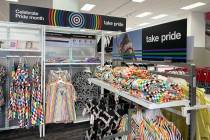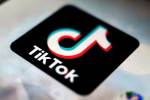Why Twitter is for twits
Let's make this simple. If I were a brand and wanted to make sure that my next social media campaign would procure some type of intensive and longtime customer engagement, where would I post it?
That question isn't an easy one. With brands continuing to flock to social media as a means of creating and keeping customers, the social media arena has not been entirely figured out. While Facebook continues to reign over the social realm, Twitter has unfittingly been labeled the distant runner-up. Now, before the Twitter enthusiasts become "Angry Birds" and share some unkind "Words With Friends," let me explain.
I like to describe Twitter as an adequate but imperfect side kick. Twitter is Robin to Facebook's Batman -- Derek Fisher to Kobe Bryant. The former would have far less significance without the latter and may get more credit than it deserves from time to time.
But at its most basic level, tweets are upgraded Facebook statuses -- a quick approach to social engagement. Thanks to its fleeting nature, Twitter users are also more fickle, since the makeup of a tweet favors its distribution as opposed to its content. Simply put, a Twitter user is less likely to have actually read a full post or watched a trailer before referring (retweeting). Mashable decided to test this theory out for itself.
After gathering a few months of social media data and calculating the click-per-share rate, Mashable revealed that Twitter users were "more likely to share an article rather than read it, whereas users on Facebook click on more articles than they share."
More precisely, "Twitter received roughly 0.38 clicks per tweet, whereas Facebook received 3.31 clicks per engagement (the number of times people posted a Mashable link to Facebook through an action on a social plugin or through a wall post)." In total, Facebook received about 8.7 times more clicks than a tweet -- a point that many marketers seem to overlook. Just because a post receives hundreds of tweets doesn't mean that the action translates into true engagement.
While Twitter does a number of great things, like promoting discounts, creating location-based challenges and check-ins, and spreading articles and social causes like wildfire, it doesn't really perform as a standalone platform. Social platforms like Facebook, LinkedIn and Google+ provide marketers with ample insight on each individual's profile. They entice users to display and reveal as much information about themselves as possible, and in doing so each page has a dual purpose: It becomes a precise audience targeting tool as well as the ultimate venue for the dedicated brand advocates to advocate.
On the other hand, Twitter is a great place to remain mysterious and rebel against engagement; it's a place where simply following a celebrity or comedian is an equally pleasing way to spend one's time. But when we start talking about money, that's where the data really shows up.
Real friends are better friends
While following Lady Gaga may make a fan feel a little more attached, it doesn't do much for adding to his or her social network. The real pull for having a Twitter account is to engage with people or sites that can entertain you, but it isn't used to keep in touch with friends or relay important details like other social networking sites.
Although popular, it cannot cultivate the type of user influence and social spread that a platform with real-world social ties can. Friends listen to friends and are more likely to respond to personal recommendations or "likes." Marketers must be aware that while Twitter followers may retweet a branded item, the chance of their followers taking action is quite low.
Mashable examined a case of social sales on Facebook versus Twitter and found that "likes" created $1.34 worth of sales compared to Twitter's 80 cents. It arrived at this number by promoting an event on both platforms and measuring the amount of clicks and eventually the amount of sales received from each. On top of Facebook driving more sales, the same event was shared four times more than it was retweeted.
While most marketers understand that Facebook is a more reliable resource for brand awareness, many fail to understand why. Real friends and "real-time" translates into real results. It's that simple.
ADHD
The time is now. With the attention spans of people shrinking every day, Twitter has cornered the market on seemingly instantaneous responses and reactions. In fact, its design almost makes staying on the site for an extended period of time implausible. With a 140-character cap, and the constant push toward trending topics, people, stories and links, brands can easily get lost in the whirlwind of information that posts on the site on a daily basis.
According to Twitter's blog, the site receives more than 200 million tweets per day. While that number is very impressive and reveals just how popular Twitter has become, it also reveals how much information is going out into the twitterverse, leaving you and your tweets to fight for attention in a very loud and overcrowded arena.
If we are simply talking engagement, the argument for marketers to invest large sums of time and money in Twitter becomes even harder to make. According to an Experian Hitwise report, the average Twitter user spends a total of 13 minutes and 2 seconds on the site during a session, compared to Facebook's 23 minutes and 21 seconds.
Drill down on that information a little further and we see that users spend an average of 2 hours and 12 minutes per month tweeting, and an impressive 4 hours and 35 minutes posting and reading updates on Facebook. The daily interactions on Twitter involve reading what others are doing or saying and not sharing information about themselves. So if users aren't talking about themselves, how can they share with their followers what brands they are interested in?
Brand relationships
Twitter can be a one-sided relationship. Since the majority of Twitter users follow others and do not tweet themselves, it becomes very difficult for a brand to try and measure its impact on any particular user.
"Twitter is great for moving bits of data, little tiny pieces of information, but it is not an experience, and it is not a conversation," Jim Meskauskas, vice president of ICON International Inc., said in a recent iMedia Connection article. "Twitter's great for pinpointing wants and needs, but terrible for building a relationship."
Trying to build a relationship with a platform that caps the amount of words you can say and bumps your tweets out of its top spot within seconds is a pretty tough task. And most often the relationships that are built are the result of deals and coupons, which can be a major problem for long-term engagement. Once a brand stops tweeting its deals, the followers cease to follow. According to a Razorfish survey, more than 44 percent of Twitter users said they followed a brand solely because of advertised discounts.
This accompanying info-graphic delves a little deeper into this Twitter vs. Facebook debate, revealing some very interesting data:
As we can see, more people log into Facebook every day, and more people follow brands. But that shouldn't surprise any marketers. I love Skittles and decided to "like" the brand a few weeks ago. Why? Because Facebook is a platform that helps reveal my virtual identity; it's like a virtual extension of my being. Unlike on Twitter, I "like" the things I care about or enjoy because they add to my character profile, which in turn reveals information about me to people in my social web. After all, isn't that what it's all about?
That's why Skittles boasts almost 19 million Facebook fans, while its Twitter page drags in a mere 15,000 followers. That difference is extraordinary. Twitter isn't for building a social profile or talking to Grandma about kittens, it's for listening to others or having your voice heard -- and neither create engagement.
What it really comes down to is time and commitment. Like any good and healthy relationship, there has to be a sacrifice of time and a mutual commitment to one another. Each social network has redeeming qualities as well as shortcomings, and they all serve some type of purpose. While Facebook seems to be the life partner of choice for the vast majority, consider Twitter a one-night stand. It's great for short-term marketing tactics -- just don't expect it to call you back the next day.
Osas Obaiza is an editorial intern at iMedia Connection. He is a recent graduate of Trinity University in San Antonio, Texas. Graduating with a degree in English and creative writing he hopes to someday one-up Stephen King.























